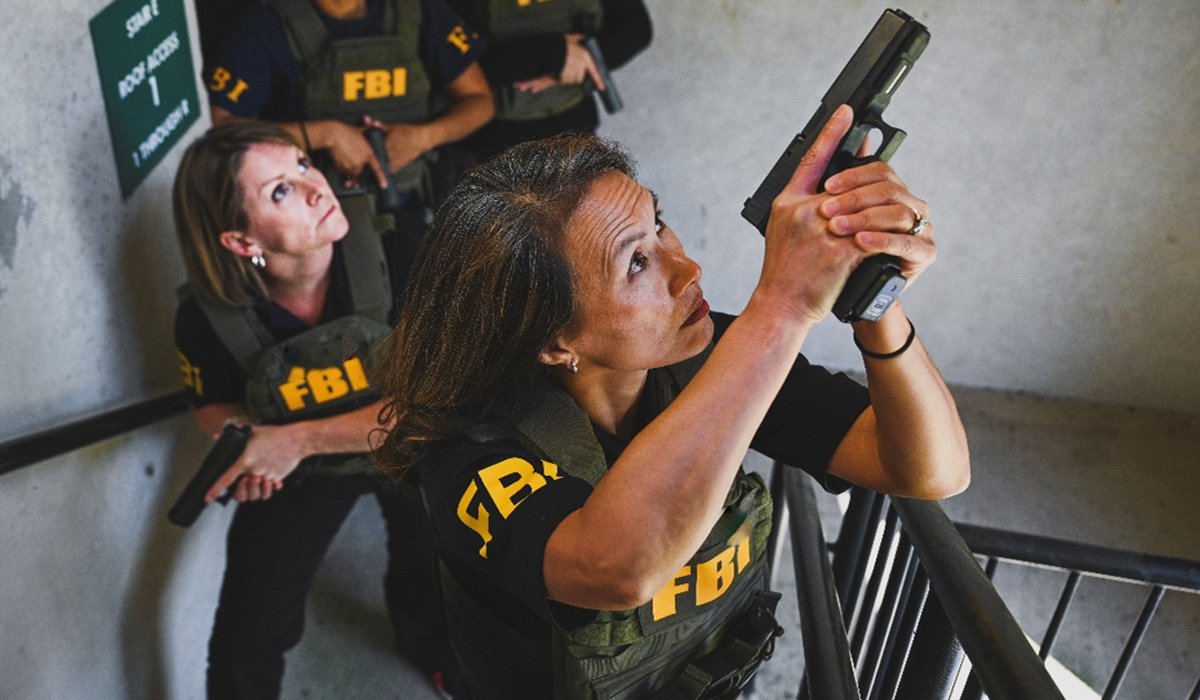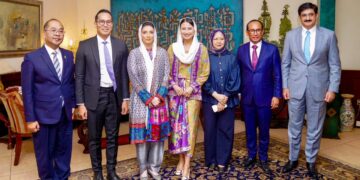WASHINGTON D.C.
- 30×30 Initiative: Effort expected to advance diversity, strengthen partnerships, and enhance operational success
In its commitment to the 30×30 Initiative, the FBI and other participating law enforcement agencies have pledged to:
- Increase representation of women in recruiting classes to at least 30% by 2030;
- Promote agency culture and standards that set up female officers for success; and
- Share progress, successes, and challenges with others in the 30×30 network.
“The FBI is committed to ensuring our work environment supports the recruitment, development, and advancement of our female sworn officers,” said FBI Director Christopher Wray about the FBI’s decision to take the 30×30 Pledge. “This important commitment reflects our continued dedication to bringing more women into our special agent cadre, FBI police, and the FBI’s leadership ranks. We are honored to join more than 260 of our policing partners in making this commitment.”
Law enforcement agencies from across the United States—and a handful from Canada—have also taken the pledge. Private sector and academic organizations are also taking part in the wider 30×30 effort. The National Association of Women Law Enforcement Executives and the New York University School of Law’s Policing Project are sponsoring the initiative.
“The Department of Justice joined this effort in September 2022 to help fulfill the executive order on advancing effective, accountable policing and criminal justice practices to enhance public trust and public safety,” explained Kisha Winston, a supervisory special agent in the FBI’s Office of Diversity and Inclusion. “That directive called for strengthening federal law enforcement recruitment, hiring, promotions, and retention practices with a focus on promoting an inclusive, diverse, and expert law enforcement workforce.” She added that making law enforcement agencies better mirror the communities they serve will enhance public safety.
FBI Chief Diversity Officer Scott McMillion agreed, adding that the distinctive approach that female FBI agents and police officers bring will help the Bureau effectively fulfill its mission to the American people.
More Than Words
Women currently make up 23.2% of our special agents with percentages even higher for incoming new agent classes—and there are similar representation levels among FBI police.
For the FBI, the 30×30 Pledge isn’t just a promise to make its incoming special agent and police officer recruiting classes more female. It’s also an opportunity to examine how we can optimize our culture including policies, procedures, and best practices to support these officers.
The Bureau plans to review processes and procedures to ensure equity and fairness across all operations, said Malaika Kennie, who serves as the FBI’s 30×30 program co-lead with ODI’s Dr. Kathleen Oltman.
But since 30×30 is a multi-year effort for the FBI, the public should view it as a marathon not a sprint.
Recruiting the Future
Research published by the 30×30 initiative indicates women only account for about 12% of sworn law enforcement officers in the country. Their research also shows that the percentage drops in the upper ranks, with women comprising just 3% of sworn officers at the police chief level.
But those statistics may be more closely tied to societal norms than to FBI application hurdles, said Oltman, an industrial and organizational psychologist at the FBI. “When you think of stereotypes and the job roles typically done by law enforcement, they don’t tend to fit with most women’s self-image,” she said. “However, we want to change that narrative and help them see a pathway to success at the FBI.”
McMillion said the Bureau’s participation in 30×30 will show Americans that there’s room for them in its workforce—regardless of their gender or other aspects of their identity. The effort will also help the Bureau intentionally seek out talent from all communities, he added.
The Bureau hopes that its 30×30 pledge will encourage women to envision a future for themselves at the FBI.
“I think representation matters, and when people see representation at all levels to include women that encourages them to consider the FBI as an employer of choice and a place to serve their community,” McMillion said.



















